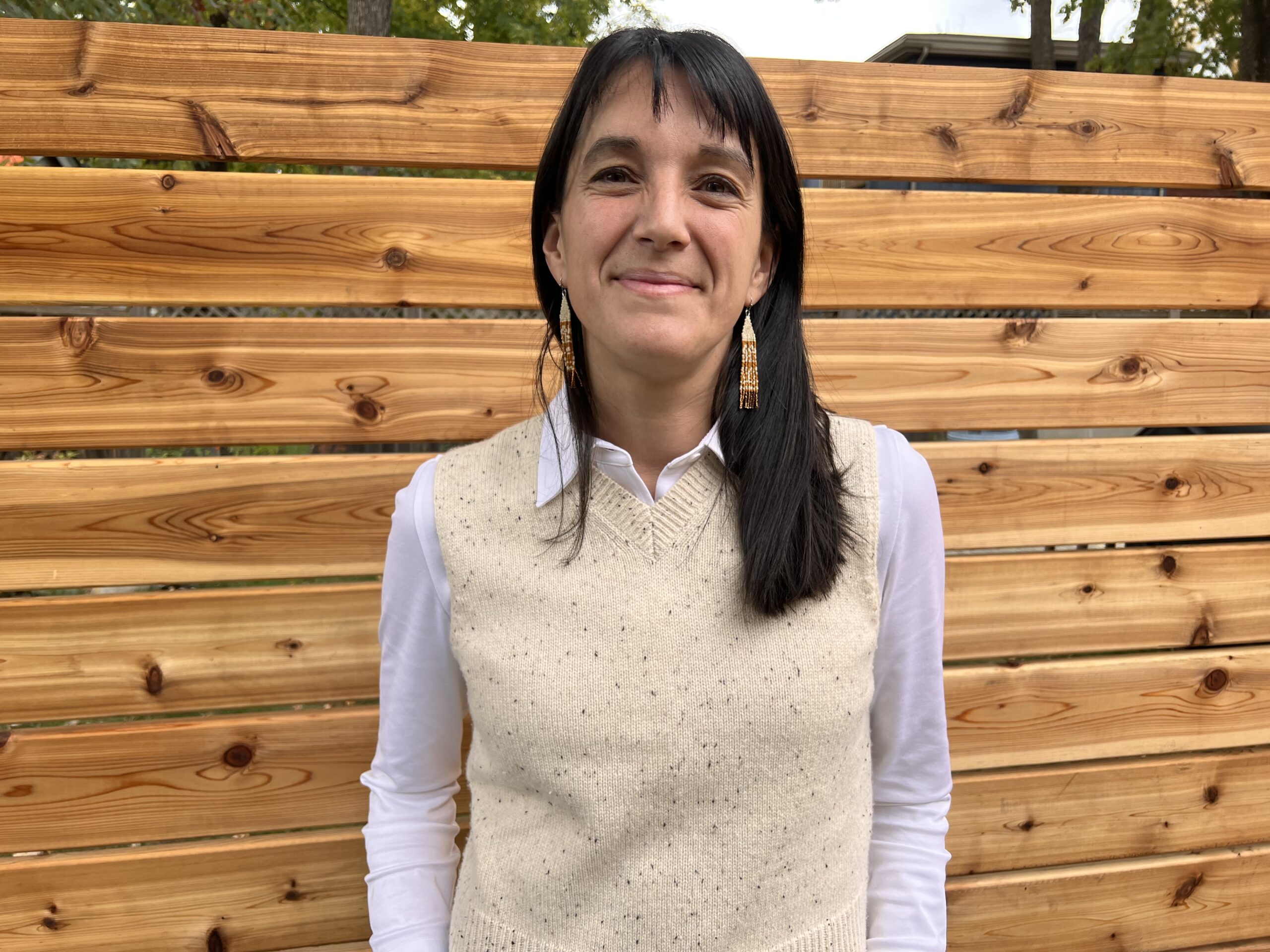
Her dad, John Chabot, was in the NHL so Charette spent her early years in Montreal, Pittsburgh, and Detroit. When he later joined the European Ice Hockey League, Charette landed in Italy for grade seven, then Berlin for the rest of high school.
Afterwards, she went to Oxford (Queen’s College) to study Politics, Philosophy and Economics. She found the experience “intellectually incredibly difficult but a complete and utter joy socially” – and admits to perhaps enjoying the latter a bit too much.
Charette returned to Canada, first to Toronto at War Child Canada, then Ottawa with the National Aboriginal Capital Corporations Association (NACCA), an Indigenous economic development organization. A bonus was spending more time with her parents in town, and her grandfather at the Kitigan Zibi Anishinabeg reserve, about two hours north. Charette is a status member of the community and is well-versed in its history. She’s aware her life is starkly different from her grandfather’s, who spoke only Algonquin until he was nine years old, trapped for food, and travelled by canoe to trade.
Adventure pulled her abroad again, with her spouse to Papua New Guinea. There, Charette helped write a draft of the United Nations Development Assistance Framework. It’s also during this stay that she came to realize the power of legal work. Malaysian corporations engage in massive deforestation in the country. Charette saw a lawyer tackle the issue by analyzing the local legal framework. “He read the laws, understood them, and showed what needed to be changed, and how to use the courts.”
From there, Charette applied to McGill Law. The Faculty’s transsystemic program served her well, showing her how to creatively craft arguments and understand the law as evolving, not static. Taking this critical – and creative — approach helps imagine how policy can be tweaked, she says.
After graduation, Charette headed off to New York City. Though she found working for an AmLaw 100 law firm gruelling ─ even more when a baby was added ─ she loved it. She always advises younger lawyers to work at a firm. “It’s rigorous training. People ripping apart your work? You will get better. You’ll be a better writer, a better thinker, you’ll be faster.”
Four years later, a return to Ottawa brought her to the Specific Claims Tribunal formed to resolve First Nations claims over land and assets. As legal counsel, “I was helping draft judgements in an area of the law that is rapidly evolving,” she says. “The judges are fleshing out how to apply general principles to different factual scenarios.”
Individual First Nations clients then asked her to advise them on a wide variety of historical and cultural issues, from self-governance to family and property matters. “It’s all about crafting a vision for our own future,” she explains. And Charette could continue this work when she moved to Istanbul for two years, for her husband’s temporary posting.
Upon returning to Ottawa in 2020, Charette hung out a shingle for solo practice, specializing in specific claims, governance and self-determination, and Indigenous entrepreneurship. The global pandemic made her first few months in business more challenging than expected, but her practice nonetheless picked up. “I love the freedom and flexibility,” she says.
Drawing from her experience at the Specific Claims Tribunal, Charette has notably supported First Nation clients with over a dozen “specific claims” – a particular set of claims Indigenous governments have against the federal government for historical breaches of legal obligations, such as illegal reserve takings or breaches of the Indian Act.
Charette also does a lot of pro bono work, serving on the boards of Oxfam Canada and First Assist, a charity dedicated to promoting educational achievement in remote Indigenous communities through sport. She takes on a small number of Indigenous individuals as pro bono clients, recognizing how Indian status can create complicated legal situations for individuals who do not have the means to seek legal advice. In a recent matter, she challenged an Indian Affairs policy that was preventing a woman from inheriting her childhood home, and, to her pleasant surprise, got the policy changed. “We just got word that my client would be allowed to inherit her childhood house, which is really amazing,” says Charette.
There wasn’t always the political will to budge old policy, Charette explains. But now there’s the space to make creative arguments based on reconciliation. “The area of law affecting Indigenous people is changing all the time,” she says. New cases are fleshing out today’s standards and rules, that better reflect what people think is just. “In terms of Indigenous issues, this government is the best I’ve seen. It’s doing a lot of things behind the scenes that don’t get any credit at all.”
